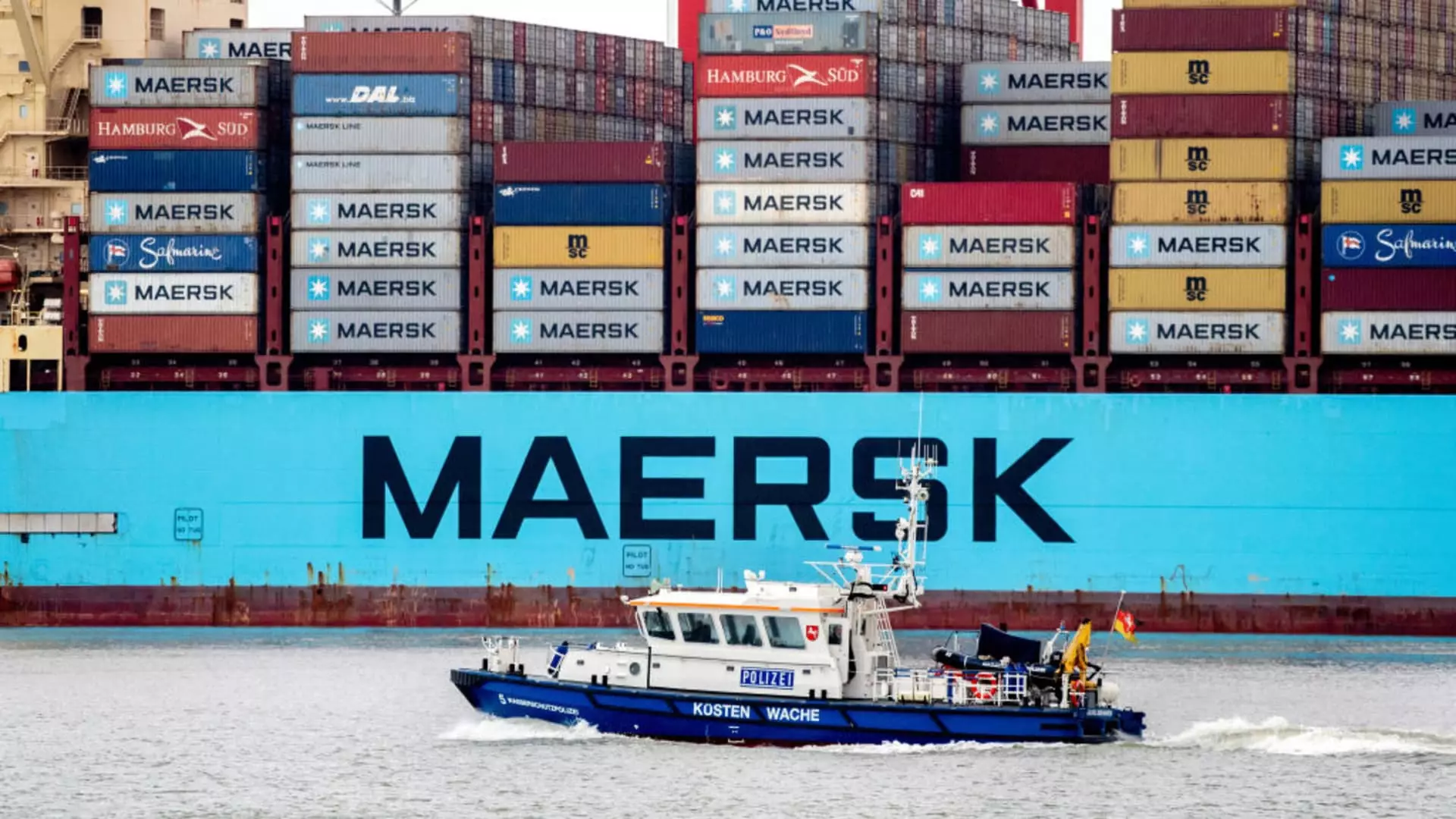In response to a series of attacks by Houthi militants from Yemen, Danish shipping giant Maersk has confirmed that its vessels will now take the Cape of Good Hope route around the south of Africa instead of transiting through the Red Sea and Gulf of Aden. This decision comes after a temporary pause on travel through these passages was announced by Maersk and several other firms. This article analyzes the implications of Maersk’s decision and the potential impact on global supply chains and freight rates.
The Security Threat Posed by Houthi Attacks
The attacks on commercial vessels in the Red Sea and Gulf of Aden by Houthi militants are alarming and pose a significant threat to the safety and security of seafarers. The recent attack on Germany’s Hapag-Lloyd ship, the Al Jasrah, further underscored the unacceptable safety risk in the region. As a result, Maersk and other companies have had to reconsider their shipping routes to ensure the security of their vessels and crew.
To mitigate the risks associated with Houthi attacks, Maersk has decided to divert its vessels to take the Cape of Good Hope route. While this route is longer and adds extra time to voyages between Asia and Europe, it provides a safer alternative. Although the longer route reduces an Asia-Europe trip’s effective capacity by 25%, it is a necessary measure to protect seafarers and prevent further attacks on commercial vessels.
The decision by Maersk to take the Cape of Good Hope route is likely to have implications for global supply chains and freight rates. With approximately 30% of global container trade passing through the Suez Canal, the diversion of vessels will disrupt the flow of goods and put pressure on supply chains. The additional time taken for ships to reach their destinations reduces the available capacity in the market, potentially leading to higher freight rates.
However, it is important to note that the shipping industry is currently experiencing oversupply due to the pandemic. This oversupply may help mitigate overall disruption to supply chains as capacity constraints are eased to some extent. Nonetheless, the situation still warrants close monitoring as any prolonged disruption could have far-reaching consequences.
Recognizing the severity of the security challenges posed by Houthi attacks, the United States has formed an international taskforce to jointly address these challenges in the region. The taskforce includes key allies such as the United Kingdom, Bahrain, Canada, France, Italy, the Netherlands, Norway, Seychelles, and Spain. While the specifics of the commitments and contributions of each country have not been provided, this collaborative effort demonstrates a unified response to ensure maritime security in the area.
Furthermore, countries like the United Kingdom and Italy have announced that they will deploy naval assets, such as the Royal Navy’s HMS Diamond and an Italian frigate, respectively, to help protect the shipping routes. The support of these naval forces, along with the actions already taken by the United States to shoot down Houthi drones targeting commercial ships, will enhance the security and deterrence measures in the region.
While Maersk acknowledges the prompt reaction and joint efforts of global governments in addressing maritime security, it remains difficult to determine when a return to the original shipping routes will be possible. Maersk and other shipping companies will continue to assess the situation on a case-by-case basis and implement further contingency measures if necessary.
The spate of attacks by Houthi militants from Yemen has forced shipping companies like Maersk to divert their vessels from the Red Sea and Gulf of Aden to the Cape of Good Hope route. While this decision provides a safer alternative, it has implications for global supply chains and freight rates. Collaborative efforts by international taskforces and the deployment of naval assets by various countries aim to address the security challenges in the region. As the situation continues to evolve, shipping companies will need to adapt and implement measures to ensure the safety of their vessels and crew.


Leave a Reply